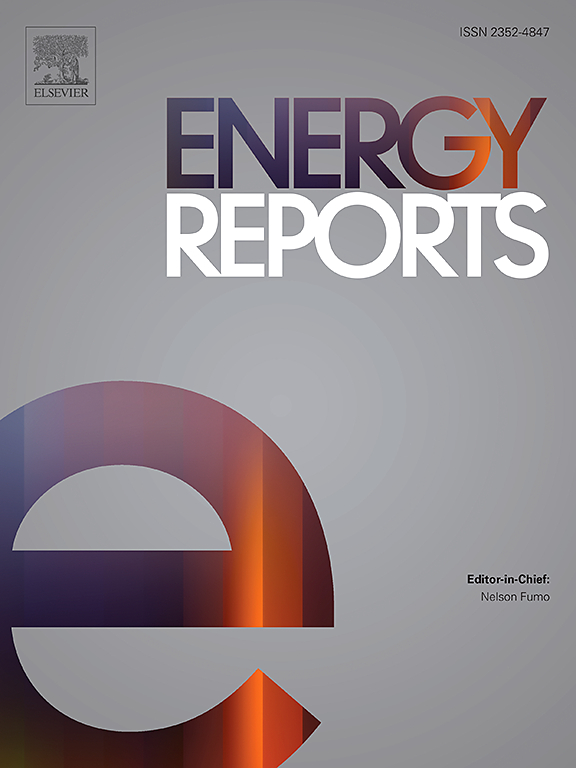Voltage stability analysis in IBR-dominated power grids using an explainable AI-based optimized deep learning framework
IF 5.1
3区 工程技术
Q2 ENERGY & FUELS
引用次数: 0
Abstract
Modern power systems are undergoing a significant transformation, moving away from traditional setups dominated by synchronous generators toward configurations with a high penetration of inverter-based resources (IBRs) including both grid-forming and grid-following inverters. This evolution presents unique challenges, particularly in the realm of voltage stability, as conventional indices and methods often fall short in capturing the complex dynamics of IBR-dominated networks. To address these limitations, this paper introduces a novel voltage stability assessment index specifically designed for power systems with substantial IBR penetration, which incorporates the distinctive reactive power and apparent power constraints of IBRs, providing a more accurate representation of stability margins. Building upon this foundation, an optimized deep learning framework is proposed, utilizing a convolutional neural network (CNN)-bidirectional long short-term memory (BDLSTM) network enhanced with an attention mechanism to significantly improve prediction accuracy. The hyperparameters of the CNN-BDLSTM model are meticulously fine-tuned using the arithmetic optimization algorithm to achieve an ideal balance between accuracy and computational efficiency. Furthermore, explainable artificial intelligence is integrated to evaluate and validate the influence of input features, enhancing the interpretability and transparency of the proposed approach. The effectiveness of the methodology is demonstrated through validation on IEEE 39-bus, IEEE 57-bus, and IEEE 145-bus systems. The results underscore the superior accuracy and computational efficiency of the proposed method, affirming its suitability for real-time voltage stability assessment in modern power systems characterized by high IBR penetration.
使用可解释的基于人工智能的优化深度学习框架对ibr主导的电网进行电压稳定性分析
现代电力系统正在经历重大变革,从以同步发电机为主的传统配置转向基于逆变器资源(ibr)的高渗透配置,包括并网和电网跟踪逆变器。这种演变带来了独特的挑战,特别是在电压稳定性领域,因为传统的指数和方法往往无法捕捉国际银行主导的网络的复杂动态。为了解决这些限制,本文引入了一种新的电压稳定性评估指标,专门为具有大量IBR渗透的电力系统设计,该指标结合了IBR独特的无功功率和视在功率约束,提供了更准确的稳定裕度表示。在此基础上,提出了一种优化的深度学习框架,利用卷积神经网络(CNN)-双向长短期记忆(BDLSTM)网络增强注意机制,显著提高预测精度。采用算术优化算法对CNN-BDLSTM模型的超参数进行了细致的微调,以达到精度和计算效率之间的理想平衡。此外,集成了可解释的人工智能来评估和验证输入特征的影响,增强了所提出方法的可解释性和透明度。通过对IEEE 39总线、IEEE 57总线和IEEE 145总线系统的验证,证明了该方法的有效性。结果表明,该方法具有较高的精度和计算效率,适用于高IBR渗透的现代电力系统的实时电压稳定性评估。
本文章由计算机程序翻译,如有差异,请以英文原文为准。
求助全文
约1分钟内获得全文
求助全文
来源期刊

Energy Reports
Energy-General Energy
CiteScore
8.20
自引率
13.50%
发文量
2608
审稿时长
38 days
期刊介绍:
Energy Reports is a new online multidisciplinary open access journal which focuses on publishing new research in the area of Energy with a rapid review and publication time. Energy Reports will be open to direct submissions and also to submissions from other Elsevier Energy journals, whose Editors have determined that Energy Reports would be a better fit.
 求助内容:
求助内容: 应助结果提醒方式:
应助结果提醒方式:


